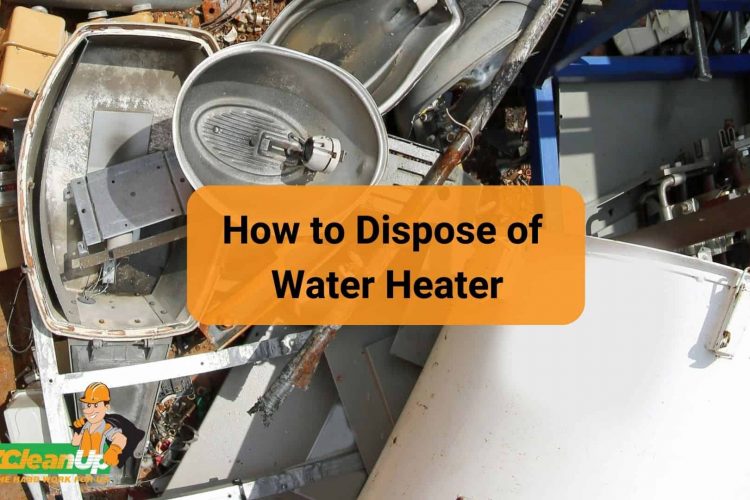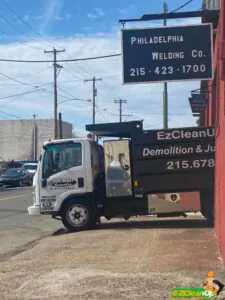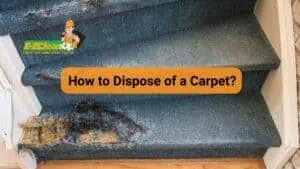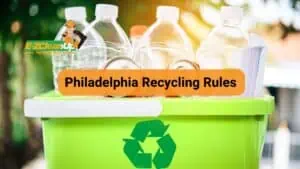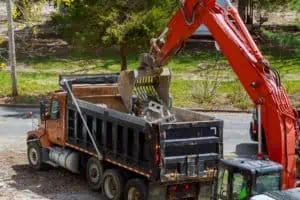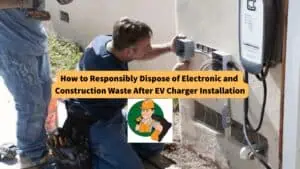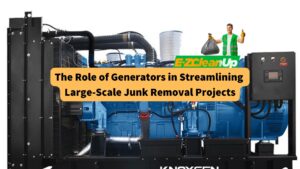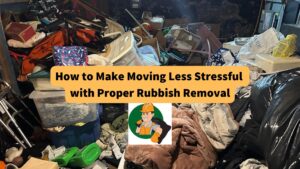Here are your options for disposing of a water heater responsibly
- Consider donating if it’s functional.
- Take non-functional ones to a recycling center.
- Use a junk removal service.
- As a last resort, go to the landfill.
Now, let’s explain each of these options on how to dispose of a water heater. If you want to know more about the process, read on.
Option #1: Donating Old Water Heaters
First, you must identify whether your old unit is still functional. If it’s in good working condition and you’re upgrading to a new one, you can donate the item instead of disposing it.
But how do you know if your water heater is suitable for donation?
- Check for Functionality: Make sure your water heater heats water effectively. Run it for a while and see if it produces hot water without any issues.
- Inspect for Leaks: Look for any visible leaks or signs of corrosion.
- Consider Its Age: Water heaters have a typical lifespan of 8-12 years. If your unit is relatively young, it’s more likely to find a new home.
Where to Donate?
Once you’ve determined that your water heater is donation-worthy, the next step is finding a suitable organization to donate it to.
Goodwill
It’s a widely recognized charitable organization that accepts various household items. However, their donation acceptance policies may vary by location, so it’s a good idea to check with your local Goodwill branch to ensure they can accept your water heater.
Habitat for Humanity ReStores
This non-profit organization focuses on affordable housing for those in need. They often accept donated building materials and appliances, including water heaters.
Local Charities
Many local charities and shelters are in constant need of functional appliances. Check with shelters, community centers, or religious organizations in your area to see if they could use your water heater.
Online Platforms
Websites like Craigslist and Facebook Marketplace can be great places to find individuals or families looking for free appliances. Just be cautious and practice safety when arranging for pickup or delivery through these platforms.
Option #2: Take Non-Functional Heaters to a Recycling Center
What should you do with your non-functional water heater?
Here’s a detailed look at recycling options for non-functional water heaters:
Identify Non-Functionality
Before heading to the recycling center, be certain that your water heater is non-functional. If it’s leaking, severely corroded, or simply doesn’t heat water anymore, it’s a good candidate for recycling.
Contact Local Recycling Centers
Start by researching local recycling centers in your area that accept non-functional appliances, including water heaters. You can find these centers through online directories or by contacting your local waste management authority.
Scrap Metal Recycling
Non-functional water heaters are often primarily made of metal, with components like steel and copper. Recycling centers that accept scrap metal can typically process water heaters. Some centers may pay for the scrap metal, which can help offset your recycling costs.
Check for Special Requirements
Recycling centers may have specific requirements for accepting water heaters. Some may ask that you remove certain parts, like the insulation, before drop-off.
Transportation Considerations
If you have a truck or access to one, you can load the water heater and deliver it yourself. Alternatively, some recycling centers offer pickup services for larger appliances, though this may come with an additional fee.
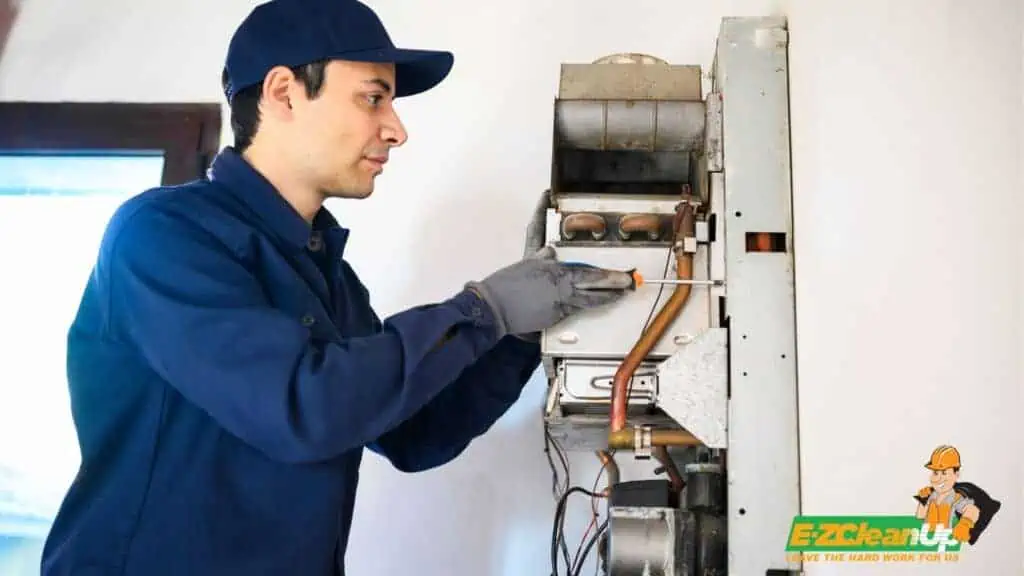
Option #3: Hire the Services of a Junk Removal Company
If you’re facing challenges with transporting your non-functional water heater to a recycling center or if there are no convenient recycling options in your area, you can consider using junk removal services.
Junk removal companies (like us!) specialize in hauling away different items, including large appliances like water heaters. They can be a convenient option if you lack the means to transport the appliance yourself.
Inquire if they accept water heaters, and if they do, schedule a pickup at a time that suits you. They will typically come to your location, load the appliance onto their truck, and handle the disposal on your behalf.
Junk removal services often charge fees based on factors like the size and weight of the items being removed. We at EZ CleanUp will only charge you based on the space your junk occupies in our truck and not the whole truck. We also prioritize recycling any junk handed to us. If we get any funds from selling your scrap, we will give it to you as credits.
Option #4: Taking Water Heaters to the Local Junkyard
While responsible disposal methods like recycling, donating, or using junk removal services are better for the environment, there may be situations where these options are not viable. In these cases, taking your non-functional water heater to a landfill or local junkyard might be necessary.
Here’s what you need to know:
Consider It a Last Resort
Landfills can have detrimental environmental impacts due to the accumulation of waste.
Prepare the Water Heater
Before taking it to the landfill or junkyard, ensure you’ve followed safety guidelines. Disconnect gas lines, unplug electrical connections, and drain the water heater to prevent potential hazards.
Contact the Facility
Call the local landfill or junkyard ahead of time to confirm that they accept non-functional water heaters. Some facilities may have specific rules and guidelines.
Transportation
Transporting a water heater to a landfill or junkyard can be challenging due to its size and weight. If you lack the means, inquire with the facility about the possibility of them collecting the water heater from your location, if available.
Fees and Regulations
Landfills often charge fees for disposing of large appliances. Junkyards may also impose fees or offer compensation for scrap metal. Be prepared for these costs and understand the regulations in place.
Dispose of Responsibly
Avoid illegal dumping, and follow the facility’s guidelines for proper placement of the appliance. This can help prevent environmental harm and ensure that hazardous components are handled safely.
Removing Your Hot Water Heater
If you don’t know how to remove the water heater so you can start disposing it of, here are the steps to follow:
Cut Off Electrical Power and Gas Supply
- Electrical power: If your water heater is electric, locate the circuit breaker or fuse box that controls the power supply to the heater. Turn off the circuit breaker or remove the fuse to cut off the electricity.
- Gas supply: For gas water heaters, find the gas shutoff valve or gas control knob, usually located on the gas line that connects to the heater. Turn the knob to the “off” position to shut off the gas supply.
Drain the Water Heater
Turn off the cold water supply valve, typically located at the top of the water heater. Connect a garden hose to the drain valve at the bottom of the water heater. Position the other end of the hose in a suitable drainage location, such as a floor drain or outside, where the water can flow without causing damage.
Open the drain valve to allow the water to flow out of the tank. To speed up the draining, you can open the pressure relief valve on top of the water heater. This allows air to enter, aiding in the drainage process. Once the water heater is fully drained, close the drain valve and disconnect the hose.
Remove Your Hot Water Heater
Now that you’ve taken the necessary precautions for safe removal, here are the steps for removing your hot water heater:
- Begin by disconnecting the water heater from the plumbing and electrical or gas connections. Use a pipe wrench or adjustable wrench to loosen and remove the fittings and pipes attached to the water heater.
- Start with the hot and cold water supply pipes. Loosen the nuts or connections that secure these pipes to the water heater’s inlet and outlet ports.
- Remove any additional plumbing connections, such as the pressure relief valve, drain valve, and any other accessories.
- Once all plumbing connections are disconnected, use the wrench to loosen any electrical connections. If your water heater is electric, disconnect the wiring by removing the access panel and carefully unscrewing the wires from their terminals. If your water heater is gas-powered, disconnect the gas line by turning off the gas supply valve, which you should have done during the safety precautions step.
After disconnecting all plumbing and electrical or gas connections, you can now focus on removing the water heater itself.
Handling “Hard Plumbed” Installations
“Hard plumbed” installations refer to situations where the water heater is directly connected to your home’s plumbing system with little to no flexible piping. In this case, carefully slide the water heater out of its position. Slowly and steadily, pull the water heater away from its location.
If you encounter any resistance due to rigid plumbing connections, you may need to disconnect these connections at the nearest accessible junction point. This could involve cutting pipes, which will later need to be reconnected when installing a new water heater.
Once the water heater is free from the “hard plumbed” connections, carefully navigate it through doorways and hallways, if necessary, to remove it from your home.
Always take safety precautions while moving the water heater, and be prepared for its weight and bulkiness.
If you’re not comfortable with “hard plumbed” disconnections or reconnections, it’s advisable to seek the assistance of a professional plumber, who can ensure the plumbing is properly handled.
When to Consult a Professional Plumber
While removing your hot water heater can be a DIY project, there are specific situations in which it’s advisable to consult a professional plumber for assistance.
Here’s when you should consider seeking their expertise:
Complex Installations
If your water heater is part of a complex plumbing system with many interconnected pipes, valves, or elaborate fittings, it’s a good idea to consult a professional plumber. They have the experience and knowledge to navigate and disassemble these setups without causing damage or leaks.
Gas Water Heaters
If your water heater is gas-powered, disconnecting the gas line can be potentially hazardous, especially if you’re not experienced in working with gas connections. Gas leaks can lead to dangerous situations. A professional plumber can safely shut off the gas, disconnect the gas line, and handle the removal.
Electrical Water Heaters
For electric water heaters, if you’re unfamiliar with handling electrical connections, it’s best to consult an electrician or professional plumber. Incorrectly disconnecting or handling electrical components can result in electrical hazards or damage to your home’s electrical system.
Local Regulations and Codes
If your local area has specific regulations or building codes related to water heater removal, it’s crucial to consult a professional who can ensure that the removal process adheres to all local requirements.
Safety Concerns
If you have any safety concerns about handling the water heater or its connections, don’t hesitate to consult a professional. Your safety and the safety of your property should always be the top priority.
Reinstallation Needs
If you plan to replace your old water heater with a new one, a professional plumber can not only assist with the removal but also ensure the proper installation of the new unit.
Warranty Considerations
If your water heater is under warranty, removing it yourself may void the warranty. Manufacturers often require professional installation or service to maintain warranty coverage.
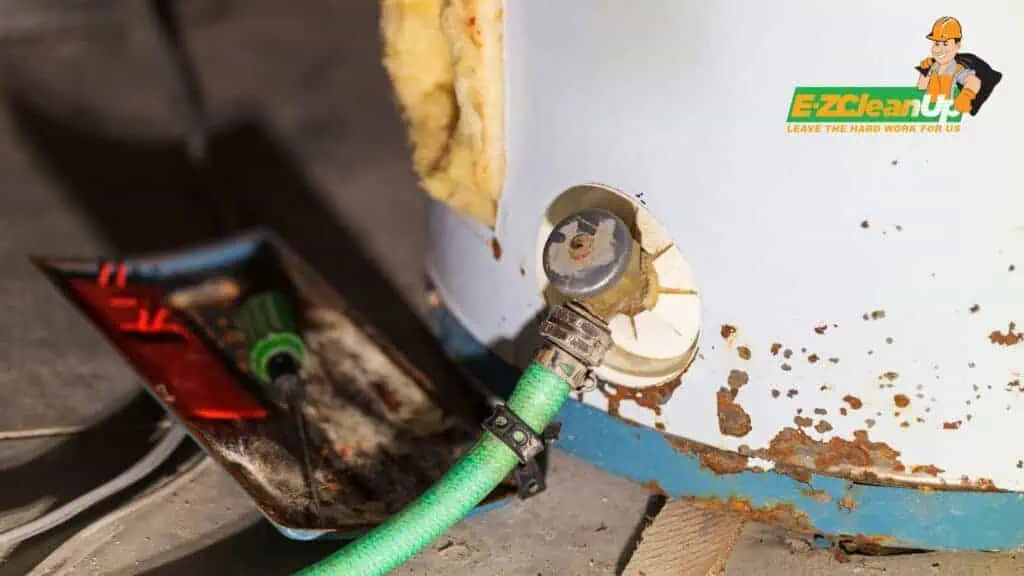
FAQs – How to Dispose of a Water Heater?
How Long Do Water Heaters Last?
Generally, traditional tank-style water heaters last around 10-15 years, while tankless water heaters may have a longer lifespan, often exceeding 20 years with proper care. The lifespan of a water heater depends on various factors, including the type of heater, maintenance, water quality, and usage.
What Happens if a Water Heater Bursts?
A burst water heater can release a large amount of water into your home. This water can damage floors, walls, and belongings, potentially leading to costly repairs. It can also create safety hazards due to electrical and structural damage. If your water heater bursts, it’s crucial to shut off the water supply, electricity, or gas and contact a professional for immediate repair or replacement.
Take the Plunge Toward an Eco-Friendly Water Heater Disposal
Water heaters, regardless of their brand or make, eventually reach the end of their lives. What’s important is that when that moment comes, we make choices that are considerate of the environment and local regulations.
If you’re looking for assistance with removing your old water heater, consider our services. As a licensed and insured junk removal company, we can dispose of your water heater fast. We can also help uninstall it; just make sure to tell us beforehand if you require the added service.
Call us now and let us help you make an informed choice about how to dispose of a water heater.

